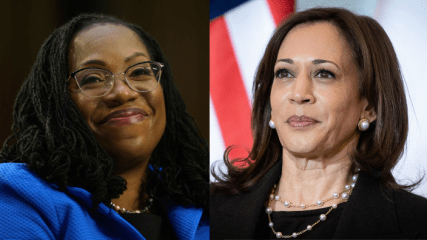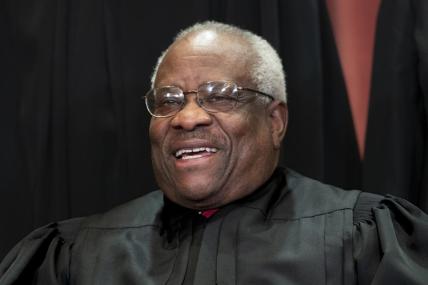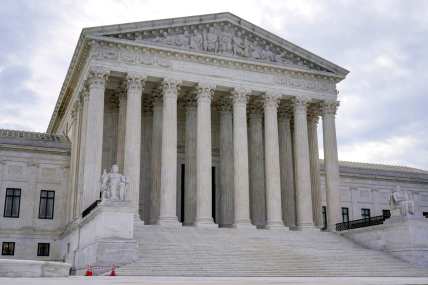What would an expanded Supreme Court and Black woman justice mean for Black America?
On the heels of the contentious hearings for Ketanji Brown Jackson, theGrio explores what Republicans describe as "court-packing" with U.S. Congressman Mondaire Jones and Black Voters Matter co-founder LaTosha Brown.
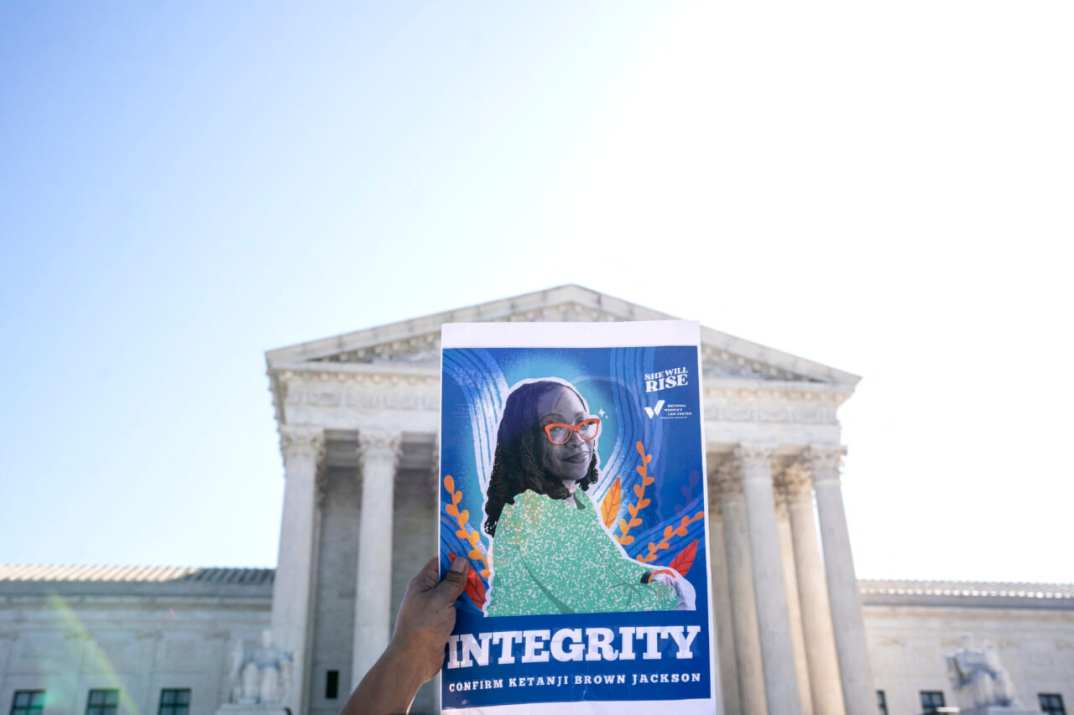
The topic of “court-packing” was a recurring theme in the contentious days-long Supreme Court confirmation hearings last week for Judge Ketanji Brown Jackson.
Jackson, who if confirmed by the U.S. Senate will become the nation’s first Black woman justice on the high court, was repeatedly pressed by Republican members of the Senate Judiciary Committee about her opinion on court-packing. Despite multiple attempts to push her on the issue, Judge Jackson consistently declined to comment – arguing that it was a matter for Congress, not the Supreme Court and that it was not appropriate to do so as it was a political question that conflicted with her “fidelity to the judicial role.”
She only offered that she’d “be thrilled to be one of however many Congress thought appropriate to put on the court.”
Judge Jackson’s answers to questions about court-packing caused Senate Minority Leader Mitch McConnell to declare on the Senate floor last Wednesday that he would not vote to confirm her – though he was never expected to support her nomination.
U.S. Congressman Mondaire Jones of New York, who along with fellow Democrats introduced the Judiciary Act last year to expand the Supreme Court from the current nine justices to 13, told theGrio that Judge Jackson did “precisely the right thing by refraining from giving advice to Congress on matters that are the prerogative of Congress.”
“I have taken great umbrage at justices like Clarence Thomas and even Stephen Breyer, who I admire as a jurist, who have dared to tell Congress whether or not it should legislate expansion of the Supreme Court.” Congressman Jones also added, “by the way, the size of the court has changed seven times before in our nation’s history.”
The topic of “court-packing” is a growing political discussion as the U.S. Supreme Court and the cases that come before it increasingly divide Republicans and Democrats. It also comes after a series of political standoffs between the two parties over the last Supreme Court nominations, largely set off by then-Senate Majority Leader McConnell’s move to block then-President Barack Obama’s nominee, Merrick Garland, from consideration for the high court more than eight months before the 2016 presidential election.

Former President Donald Trump went on to install three Supreme Court justices, tilting the court to a 6-3 conservative majority.
In the words of Democrats, McConnell “stole” the Supreme Court seat, prompting calls from the left for Democrats to expand the court if they were to win back power in both the White House and Congress after the 2020 elections. As a presidential candidate, Joe Biden declined to support expanding the court, but later as president established a bipartisan commission of experts and scholars to study possible ways to reform the judicial branch.
Since the 2020 election, Republicans have used the issue of court-packing as a conservative rallying call against a possible “radical power grab” by Democrats. Congressman Jones noted in his interview with theGrio that Republicans “erroneously describe” the issue of expanding the Supreme Court as “court-packing,” arguing “in fact, we know that the court has been packed by Republicans when they held that vacancy open after [Justice] Antonin Scalia died and prevented Merrick Garland from even getting a hearing.”
“And then rushed through the confirmation of Amy Coney Barrett, even as a presidential election was underway in the year 2020,” he added.
Jones said the “repeated inquiry” by Republican senators of Judge Jackson on the question of court expansion is rooted in a “fear that their project to take away fundamental rights” is at “risk of being prevented from being successful if we were to expand the court.”
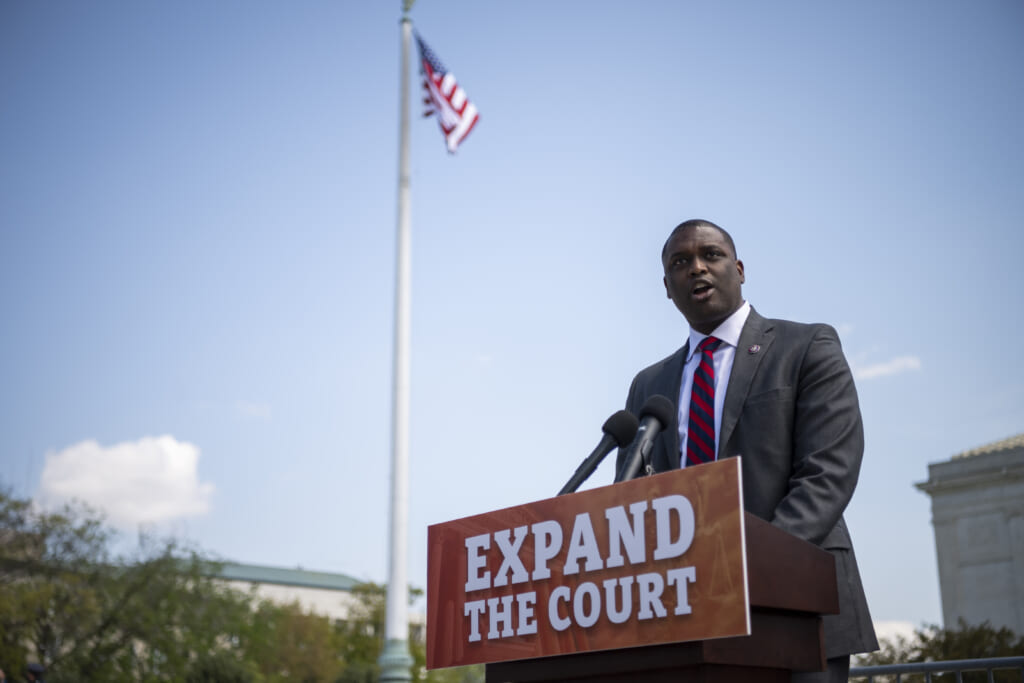
“It’s the one structural change that would preserve Roe v. Wade, the rights of LGBTQ+ individuals [and] voting rights, which have been undermined by the [Chief Justice John] Roberts Court in a way not seen in generations. So I think that’s why there is this obsession.”
Similarly, LaTosha Brown, co-founder of Black Voters Matter, recently told theGrio’s Natasha S. Alford that she views the current makeup of the Supreme Court as a packing of “ideologues.”
“You’re seeing a court…that instead of protecting citizens from the law, they actually wind up weaponizing the law against certain citizens. Because of this packing process…we need to be thinking about how we expand the court,” said Brown. “We have to radically reimagine what the political landscape will be.”
Brown linked the nation’s becoming “younger” and “browner” to today’s “basic attacks on democracy,” particularly voting rights.
“We’re seeing the strategic packing of the courts,” said Brown, adding that court-packing hasn’t just happened on the Supreme Court level, but also on the federal court level as Trump appointed dozens of conservative judges on the federal level and, Brown noted, did not appoint a single Black judge during his presidency.
Brown credited President Biden for his historic nomination of Judge Jackson to the Supreme Court and his appointing a record number of diverse judges to the lower courts.
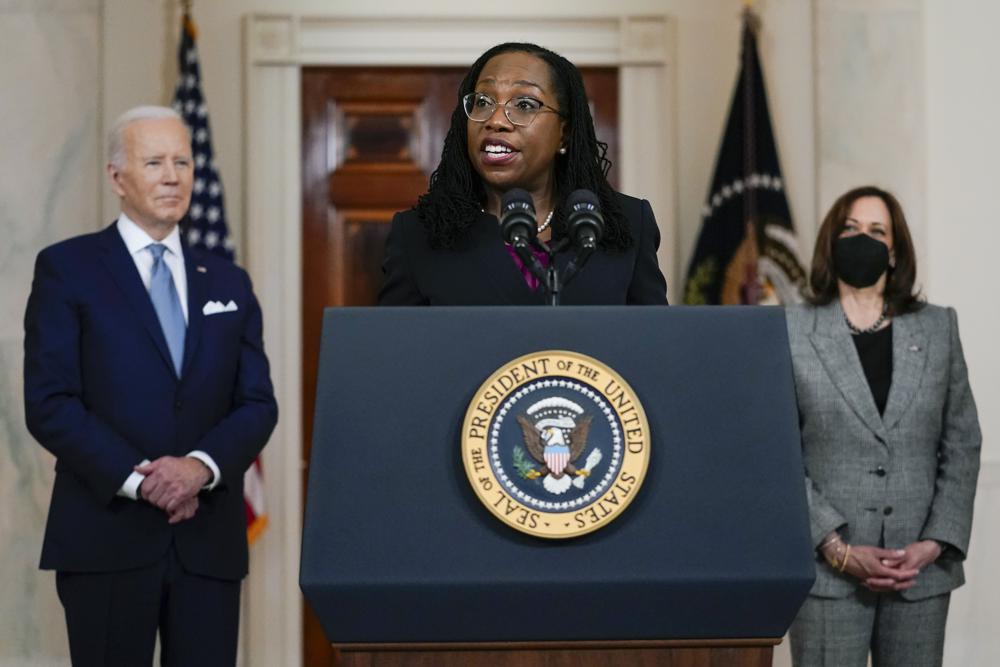
“I think it’s really important for us to really recognize that we got to start paying attention to this whole court process, particularly Black folks,” Brown told theGrio.
Congressman Jones said an expanded Supreme Court – one that will almost certainly have a Black woman sitting on its bench this fall – would be “critical” for Black people.
“It’s critical to restoring the fundamental right to vote, which for too many Black people in this country is elusive because of the decisions made by the Supreme Court over the past decade, especially in Shelby Holder, which gutted the heart of the Voting Rights Act in 2013,” said Jones. “We know that if we were to pass the George Floyd Justice in Policing Act today as a Congress, this far-right conservative majority would create reasons out of thin air to strike down key provisions.”
The openly gay, Harvard Law-educated congressman added, “We also know that Black people are intersectional, that there are queer Black people, for example, just like there are Black women and whether it is protecting Roe v. Wade or protecting LGBTQ+ rights, including the right not to be discriminated against in the housing context or the education context or the right to marry the person you love, all of that would be protected if we were to expand the size of the Supreme Court by the number four.”
Ultimately, Jones said, Judge Ketanji Brown Jackson will be confirmed and will add needed value to an ideologically bent Supreme Court.
“She is acutely aware of the importance of the fundamental right to vote, of a true multiracial democracy, which faces its greatest assault since the Jim Crow era by this far-right 6-3 conservative majority on the Supreme Court. I think her voice is more urgently needed than ever before,” he said. “And more broadly, court expansion, adding four seats to the Supreme Court, in particular, to restore balance to this institution that has lost its credibility, is critical to the Black community.”
TheGrio is now on your TV via Apple TV, Amazon Fire, Roku, and Android TV. Also, please download theGrio mobile apps today!”
